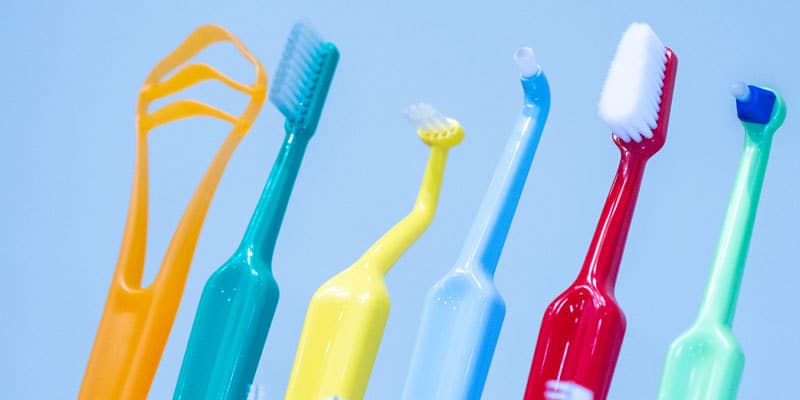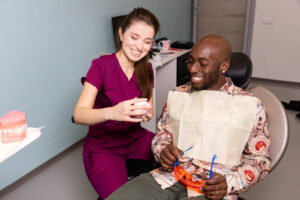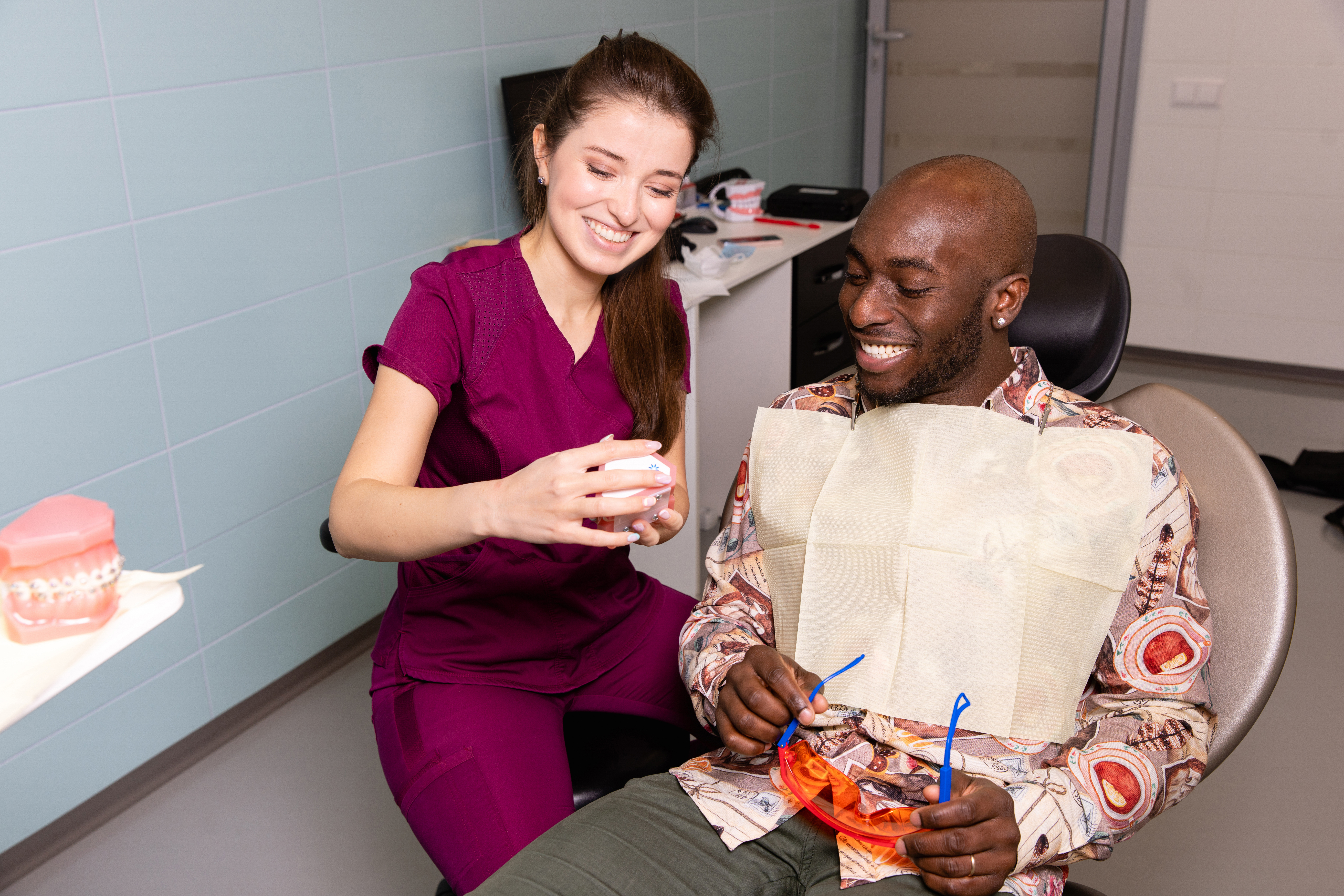- How often should adults change their toothbrush?
- Should children change toothbrushes more often than adults?
- How to maintain your toothbrush
- What happens if I don’t change my toothbrush?
- Easy reminders for when to change your toothbrush
There’s nothing like leaving a dentist appointment with fresh, clean teeth and gums, and treating them to the soft, straight bristles of a brand new toothbrush. New brushes are optimal for ongoing dental care, and are most effective at preventing cavities, plaque build-up, and bad breath by removing food and bacteria that have collected along the gumline.
However, toothbrushes aren’t meant to last forever, and will wear out over time. But do you know how often you should change your toothbrush, what the signs are of a brush that should be replaced, and what happens if you use a toothbrush way past its prime?
These are important things to know, because continuing to use an old, tattered toothbrush can lead to oral health issues that are easily avoidable by changing brushes on a regular basis – or due to other factors that warrant replacing it earlier.
How often should you change your toothbrush?
We recommend that patients brush our teeth at least twice per day. The wear and tear on your toothbrush from such frequent use will become noticeable over time, but how bad should it get before we throw the old toothbrush out and start using a fresh one?
Manufacturers and dentists recommend that you should change your toothbrush every 12 – 16 weeks to maintain a consistent level of oral hygiene. Replacing it beyond 16 weeks can negatively affect your oral health and leave your mouth open to bacteria and infection.
Electric or vibrating toothbrush heads can wear out even faster, as the nylon bristles are shorter than manual toothbrushes, and are subject to quick spinning motions in order to properly clean your teeth. You should only use spinning toothbrush heads for a maximum of 12 weeks, and then replace it with a fresh one.
Of course, these guidelines apply to the normal routine of brushing twice per day and taking proper care of your toothbrush between brushings. There are some circumstances where you should throw away your old toothbrush before the 3-month recommendation.
For example, if you or a family member has been sick, especially in the case of viral and bacterial infections such as strep throat, you can stop the spread of disease by replacing every toothbrush in the house.
Or, if someone else uses your toothbrush by mistake, throw it away. It’s a good idea to start using a new toothbrush than risk infection from the bacteria in someone else’s mouth.
Another circumstance in which to replace your toothbrush is if it’s beginning to look worn out, the bristles have lost their stiffness, or the brush has fallen into a garbage can or other unclean environment. It’s always better to be safe than sorry!
Should children change their toothbrush more often than adults?
Children should have their toothbrushes changed more often than adults, as they tend to gnaw on the handle or squeeze the toothbrush head between their teeth. This lessens the toothbrush’s effectiveness to adequately clean and maintain your child’s smile than through normal use.
You should also ensure that they are rinsing their toothbrush thoroughly in case they expose the bristles and brush head to surfaces other than their teeth.
How to maintain your toothbrush
Along with your toothbrush, you likely use many personal grooming tools every day, such as razors, trimmers, and water flossers. What sets toothbrushes apart is that they’re one of the few appliances that make direct contact with the inside of your mouth, so caring for them is crucial to making them last and protecting your health.
After using your toothbrush, rinse it thoroughly with water. Let it air dry upright in a cup or container, but if others are storing their toothbrushes in the same container, try not to let the heads or bristles touch one another.
You can also store your toothbrush in a closed container, although storing a wet toothbrush in a closed environment can still cause mould to grow or bacteria to spread.
What happens if I don’t change my toothbrush?
Over time, the bristles on your toothbrush will weaken, and begin to bend and twist in different directions. This is known as bristle flaring, and occurs as a result of the water, toothpaste, and brushing motion your toothbrush is subject to every time you use it.
Bristle flaring affects your toothbrush’s ability to brush food aside and effectively remove plaque, allowing it to build up and lead to gum disease and tooth decay. You can help avoid having to be treated for these conditions by simply changing your toothbrush every 12 – 16 weeks.
Easy reminders for when to change your toothbrush
It might not be easy to remember exactly when the 12-week recommend time is up to change your brush, outside of the bristles visibly wearing out. However, you can try a few simple techniques to keep you on schedule:
- Replace your toothbrush on the first day of every changing season throughout the year
- When you start with a new toothbrush, place a reminder on the calendar for 12 weeks down the road to throw it out
- If you visit your dentist for a routine checkup every 6 months, change your toothbrush after your appointment, and then again at the halfway mark between appointments
Of course, at any time the bristles on your toothbrush begin to look frayed, discoloured, or worn out, change your toothbrush as soon as possible. You’ll be protecting your teeth against oral health issues and giving your smile the best possible chance of remaining clean, white, and healthy.
Questions about how often you should change your toothbrush? We’ll answer this and all your questions at Yonge Eglinton Dental in Toronto
Give Yonge Eglinton Dental a call today at 416-932-2222 or visit us online to book an appointment. We’d love to see you!
Concerned about visiting the dentist? Read about how we protect the health and safety of our patients and staff so you can seek proper dental care with peace of mind.








